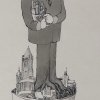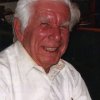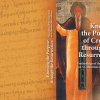Spomenik beogradskom gradonačelniku Branku Pešiću radiće srpski vajar Marko Kratohvil koji živi u Los Anđelesu, odlučeno je na sednici Odbora za podizanje spomenika kojim je predsedavao istoričar umetnosti Nikola Kusovac.
Spomenik gradonačelniku Beograda, koji je bio prvi čovek prestonice jednu deceniju, u periodu od 1964-1974. godine, tokom kojih su završeni most „Gazela“, petlja „Mostar“, Terazijski tunel, izgrađena Beograđanka, ali i gotovo stotinu hiljada stanova, biće postavljen na jesen.
Umetničko delo biće, kako je najavio zamenik gradonačelnika Beograda Goran Vesić, postavljeno tokom jeseni u pešačkoj zoni u starom gradskom jezgru Zemuna.
Umetnik Marko Kratohvil, koji je izabran da radi spomenik Branku Pešiću, rođen je u Beogradu, gde se i školovao. Ali, 1991. kako stoji u njegovoj biografiji, preselio se u London gde je živeo i stvarao skulpturu, crteže i bavio se arhitektonskim dizajnom 25 godina.
Od 2009. umetnik se nastanio u Los Anđelesu, a kako navodi u svojoj biografiji, izlagao je tokom karijere širom Evrope i Amerike, dok mu se radovi nalaze u privatnim i javnim kolekcijama.
Grad Beograd će finansirati, kako je Vesić napisao na svom Fejsbuk profilu, i dokumentarni film o Branku Pešiću, čiji su autori Duška Jovanić i Vuk Dapčević.
Izvor: Nova.rs






